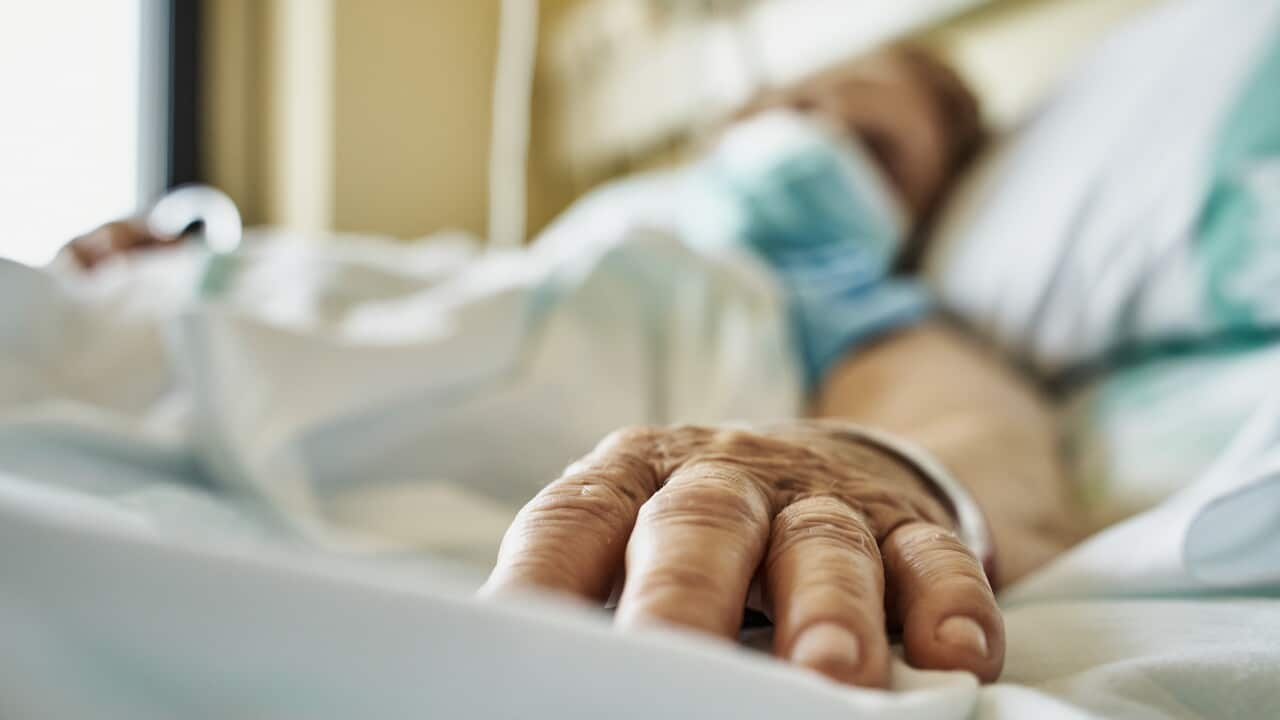This article contains images that some may find confronting.
Even when more than 20 doctors delivered the grim prognosis, Ranem Abu Izneid still held a small sliver of hope that she would miraculously regain vision in her injured eye.
It's been just over a month since the Australian was in her dormitory at Al-Quds University, in , , with shrapnel from the projectile permanently damaging her right eye.
Abu Izneid also suffered injuries to her face, neck, scalp, and chest from the projectile, which her flatmate has said exploded near Abu Izneid after hitting the top corner of their shared room.

Ranem Abu-Izneid sustained serious injuries to her face, neck, scalp, chest and her right eye. Credit: Supplied
"Later on did I get to know that I was shot at."
Following the incident, the 20-year-old had surgery on her eye at St John of Jerusalem Eye Hospital, but it was unsuccessful.
"I didn't want to lose hope," the dentistry student told SBS News on Thursday.
"I was hoping that maybe, maybe in Australia they would have been able to do something else."
They couldn't.
On Wednesday, the 20-year-old had her right eye removed at a Melbourne hospital, with a prosthetic now in its place.
After her surgery, Abu Izneid was unable to open her left eye from the pain.
"Whenever my left eye moves, my right prosthetic eye piece moves with it, so it causes me much pain," she said.
'I want to know who did this'
Her family has previously called for the Australian government to assist with an independent investigation and Abu Izneid still has many questions about the incident that led to her injury in a non-combat zone.
Her first question is this: who was responsible?
"I want to know why it is okay for a random idiot to think that pulling the trigger is a good idea — it's a non-combat zone, this shouldn't be happening there," she said.
"I was at home minding my own business on the fourth floor — it doesn't make sense for any of this to happen."
She also wants to know why her injuries were so severe.
"I want to know what type of a bullet did this to me," she said.
"I want to know, how severe is this injury for me to ... still walk out of here the same way I walked in?"
SBS News has contacted the Israeli Border Police and the Israeli Embassy in Canberra for comment.
Last month, the Israeli Border Police told the ABC that security forces entered Abu Dis on 15 November to "rescue a citizen who was attacked there" — later clarifying its statement to say the man had left by the time they arrived.

The projectile went through the frame of Ranem Abu Izneid's dormitory window. Source: Supplied
"In response, the forces responded with live fire in order to neutralise the danger."
The Department of Foreign Affairs and Trade (DFAT), which was also been contacted for comment, previously said it had asked Israeli authorities for more information about the incident.
In a statement provided to SBS on Thursday night, DFAT said the government "has made clear to Israel our expectation of a comprehensive and transparent investigation into this incident".
Dr Amireh Fakhouri, from the Palestinian Australian New Zealand Medical Association, said it was important for the Australian government to investigate.

Dr Amireh Fakhouri is a board member of the Palestinian Australian New Zealand Medical Association, which is facilitating Abu Izneid's care. Credit: SBS News
'I don't want this to break me'
Abu Izneid's family say she now requires long-term support as she adapts to her new circumstances, including educational, medical, and daily life support.
The loss of her right eye has also made her future studying dentistry more uncertain.

Ranem Abu Izneid (left) and her mother Rana (right) want the Australian government to investigate how the incident that led to Ranem's injury happened in a non-combat zone. Credit: Tys Occhiuzzi
"At the end of the day I don't want this to break me," she said.
"I want to at least know that I can continue the life that I have drawn for myself and the life that I ask for."
Fakhouri, who has been coordinating Abu Izneid's medical care, said the future is uncertain.
She said whether someone with a disability can practice with one eye would require assessments by medical industry regulators.
"I do hope that she will be able to have a future in dentistry, whether it may be an academic field as teaching dental students, or whether it's clinical dental work."

Ranem Abu Izneid sits in her hospital bed in Melbourne. Credit: Supplied
Despite the surgery for her eye, Abu Izneid still requires other medical care.
"I came here with shrapnel lodged in my face, my chest and my neck and today after extracting my eye, I walk out of here with shrapnel still lodged in my face and my neck and my chest."











